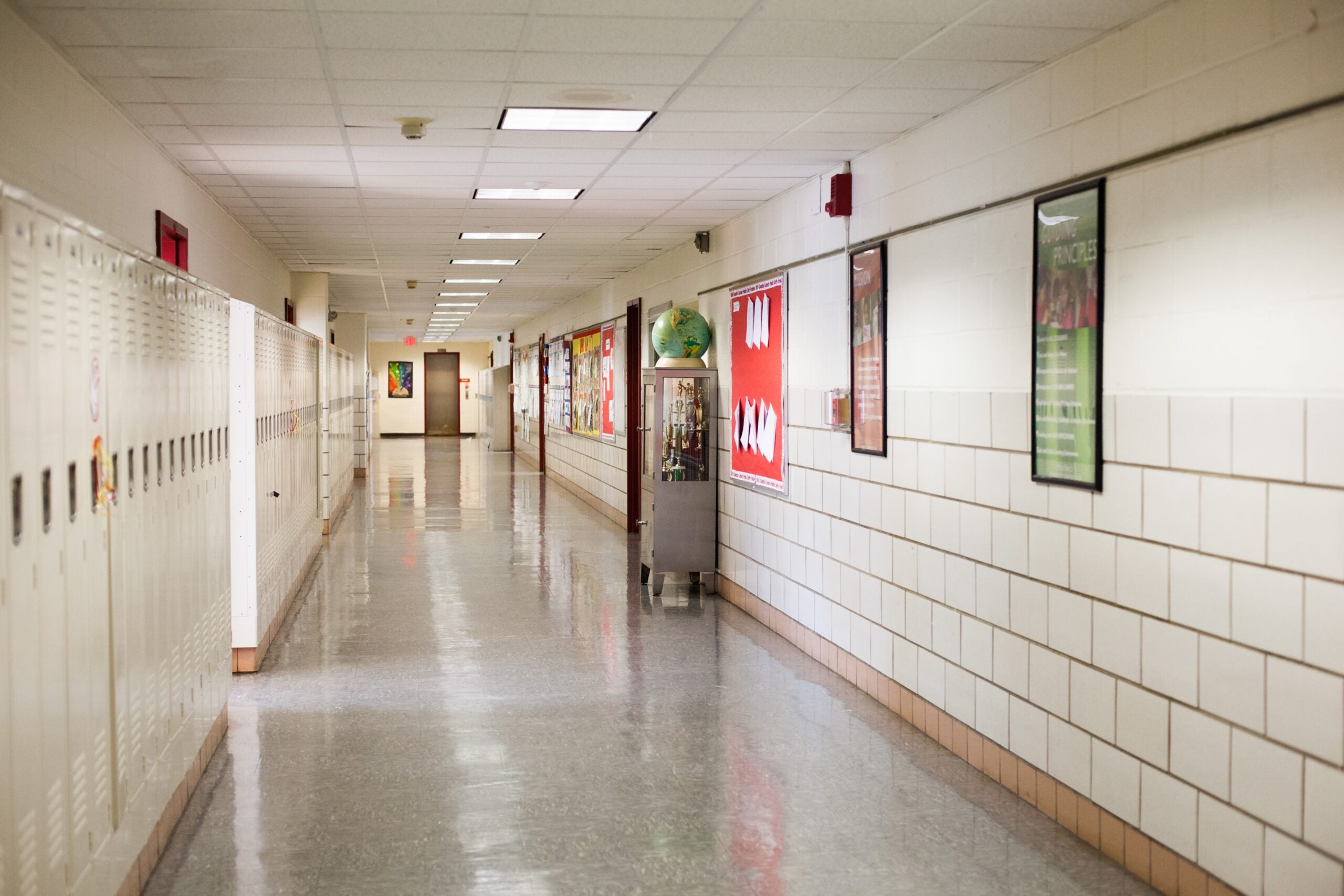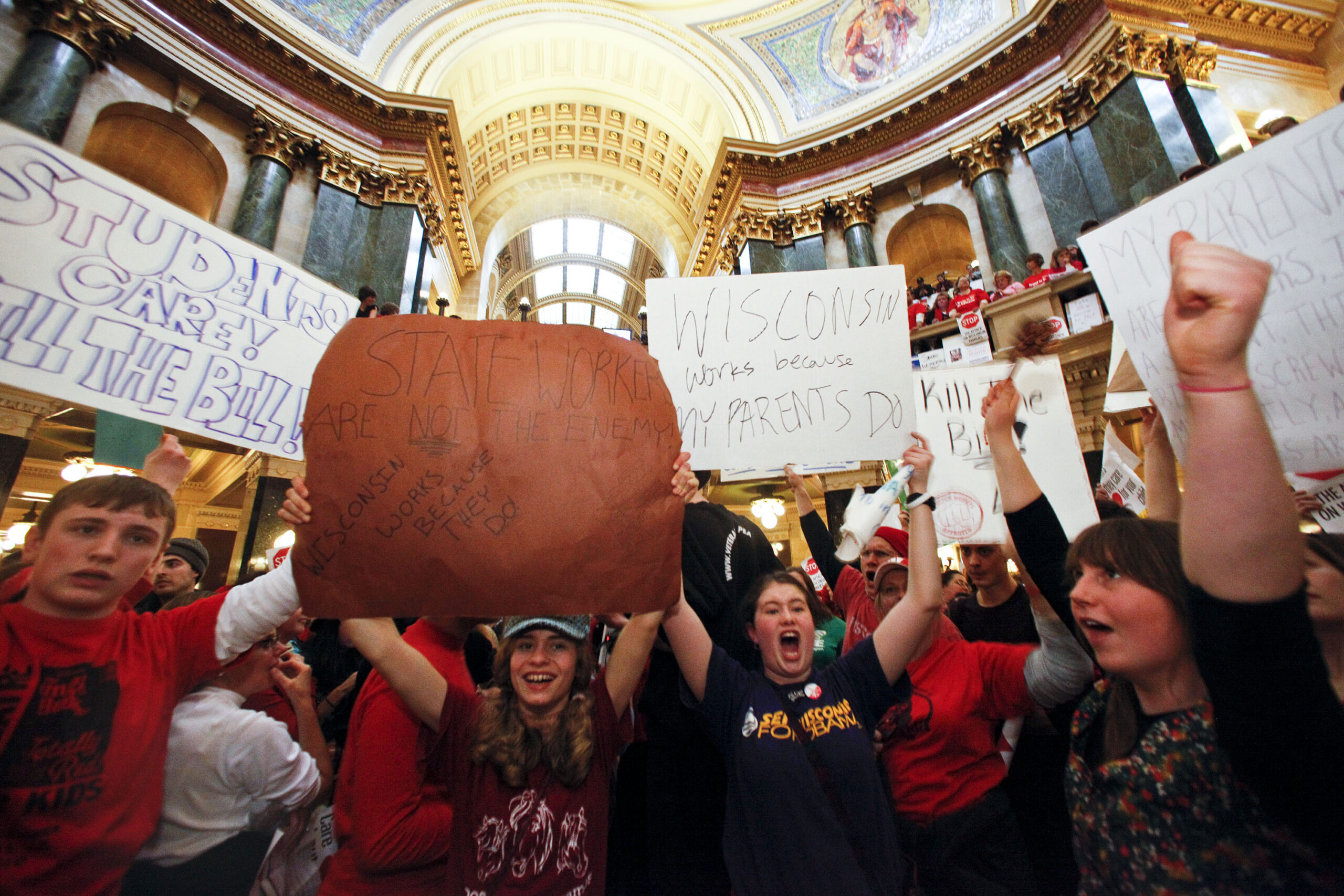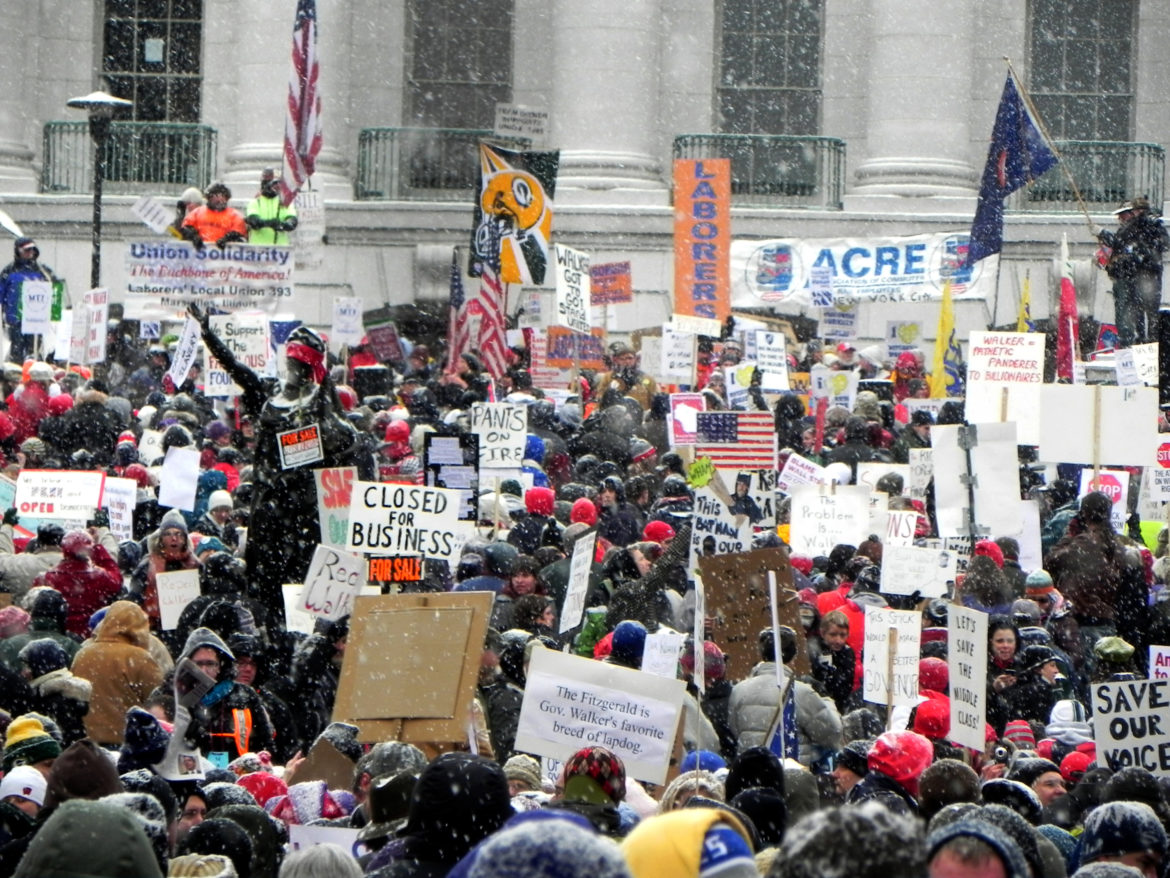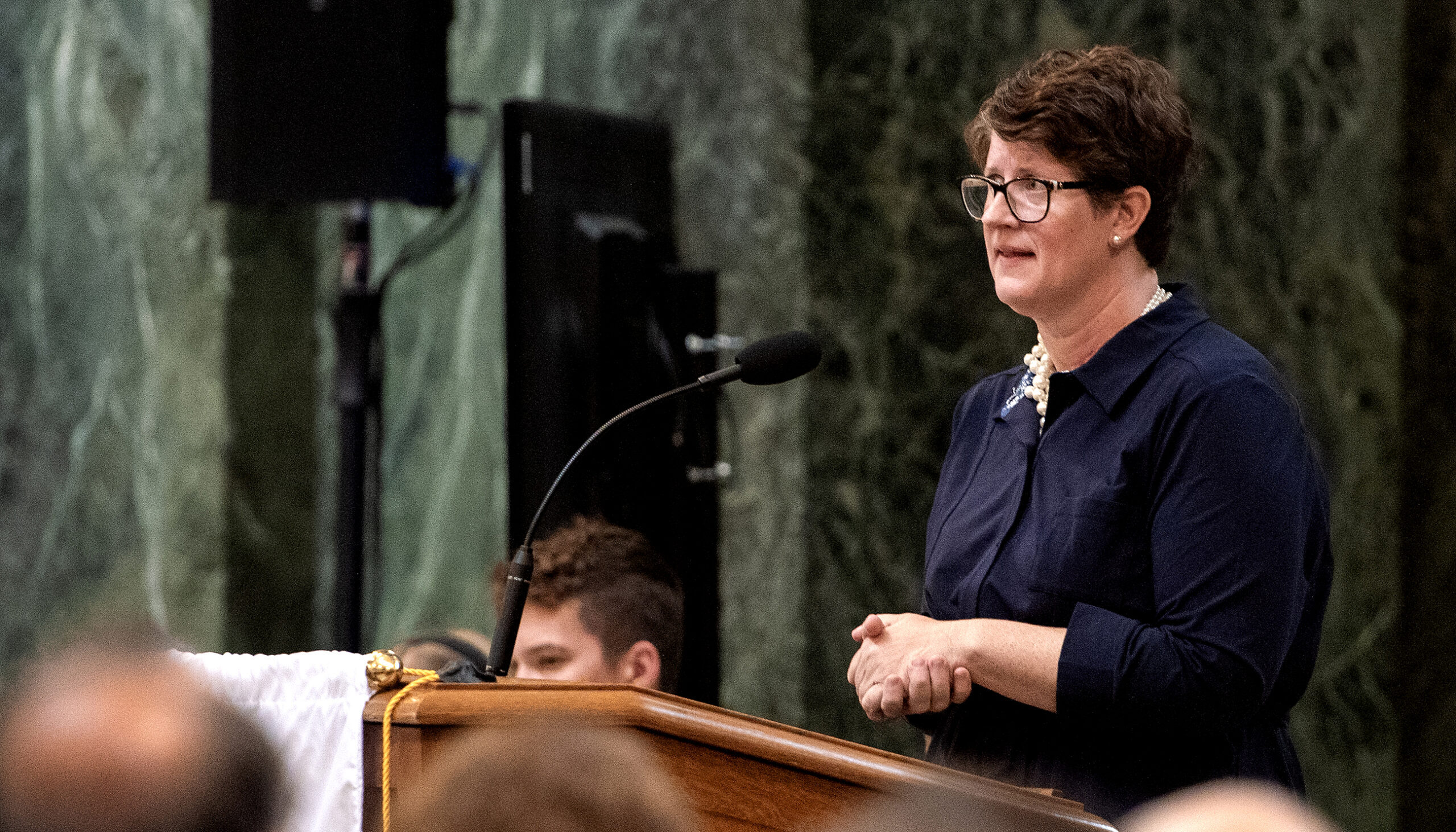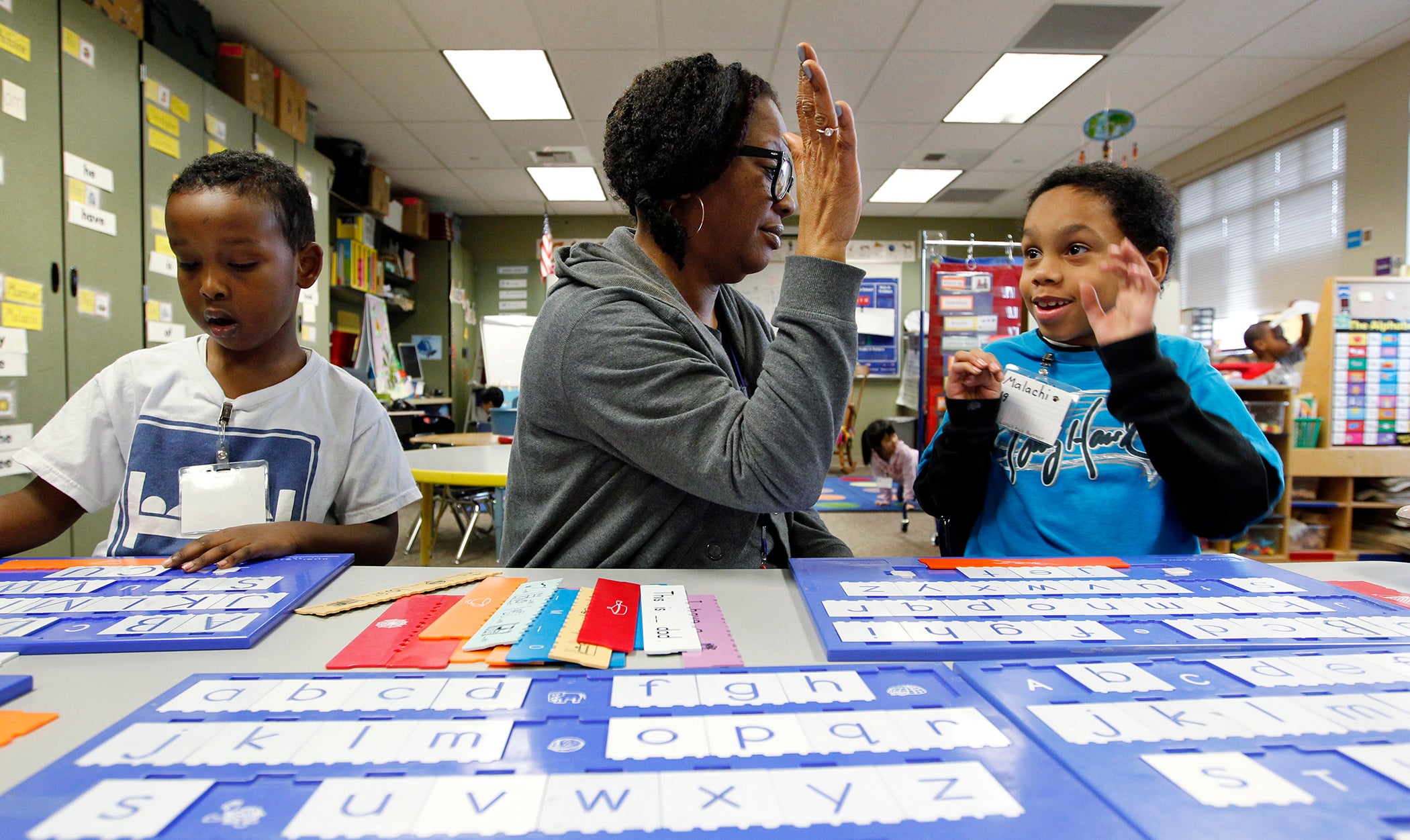A new report from conservative legal action group Wisconsin Institute for Law and Liberty finds Act 10 has had little impact on Wisconsin’s education workforce but the state’s teachers’ union argues the data included in the report doesn’t reflect reality.
The report found Act 10, the controversial legislation that stripped collective bargaining rights from most public sector employees, hasn’t had a significant impact on student teacher ratio or teachers’ average time on the job. The authors also found changes to total teacher pay weren’t significant relative to Wisconsin’s bordering states.
But average base pay is down $2,000 and fringe benefits are down $5,000. Report authors argue total pay is a better measure of how much teachers are taking home since it incorporates bonuses, merit-pay programs some districts have created since Act 10 passed and stipends.
Stay informed on the latest news
Sign up for WPR’s email newsletter.
WILL’s CJ Szafir said Act 10 gave districts more power to shop around for benefits and that total spending doesn’t necessarily reflect overall quality.
“Some of those districts were able to keep the same services or better at a cheaper price,” he told reporters on a Tuesday conference call.
But Wisconsin Education Association Council spokeswoman Christina Brey said the reality is many teachers have seen their earnings stagnate or decline.
“We see some districts now starting to realize they cannot retain quality, qualified caring teachers without stable pay systems,” she said.
Brey dismissed the report as only being supported by the same groups that back Gov.Scott Walker.
But the report also found the decline in the state’s total teacher workforce was greater in the years leading up to Act 10 than in those since it passed.
Szafir said that’s a far cry from the workforce decimation unions and other Act 10 opponents predicted.
“This report shows that many of those claims were either greatly exaggerated and/or failed to materialize,” he said.
Brey said WILL downplayed the changes in the state by comparing them to those in Minnesota, Michigan, Iowa and Illinois. She said Wisconsin was a leader in public education in the region and across the country.
“And that has eroded to the point that we’re seeing teacher shortages and huge numbers of taxpayers approving referendums to make up the difference,” she said
Across the state, more than three-quarters of referendums to raise local taxes to support school spending passed during the April primary.
Wisconsin Public Radio, © Copyright 2024, Board of Regents of the University of Wisconsin System and Wisconsin Educational Communications Board.

